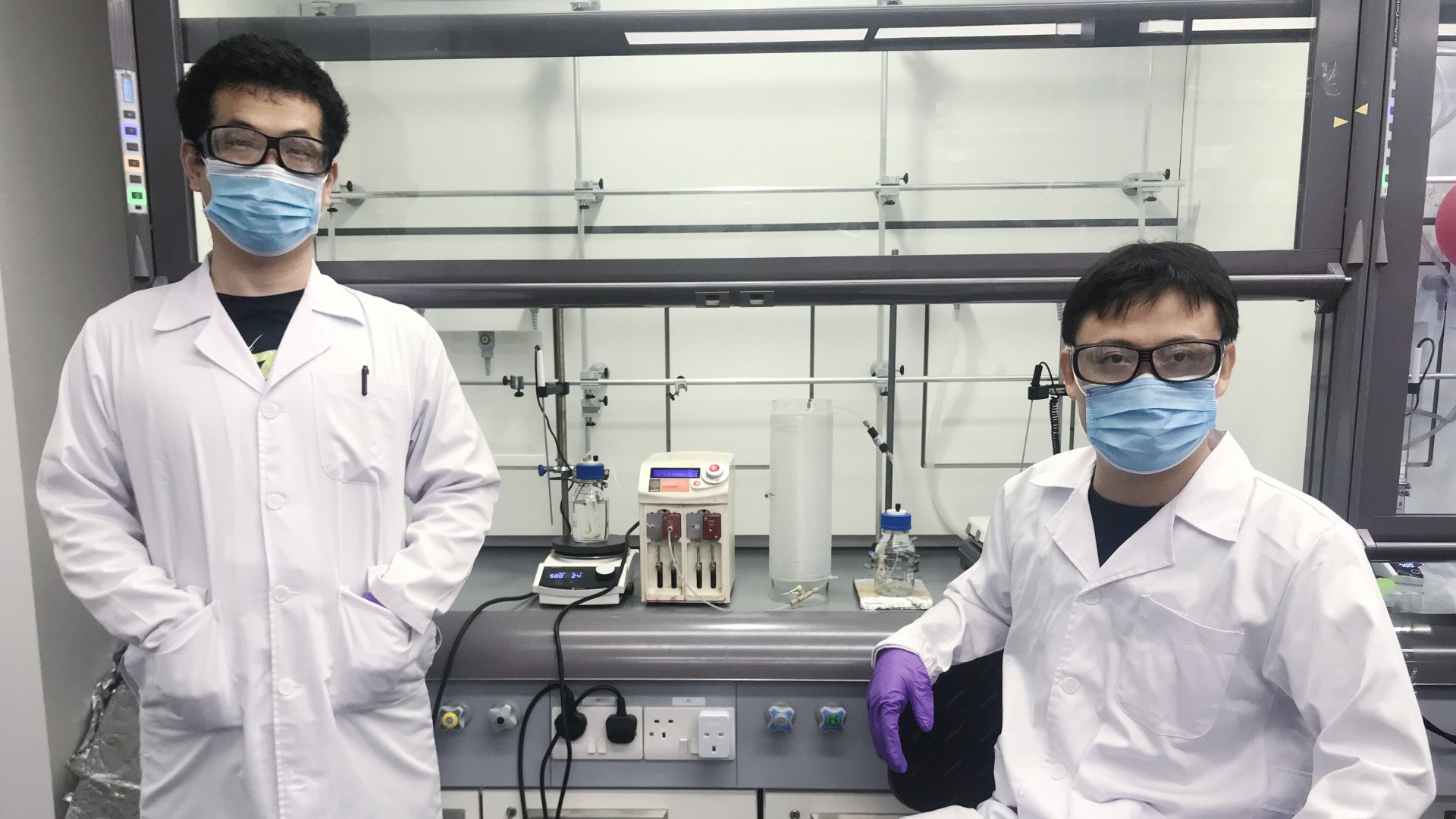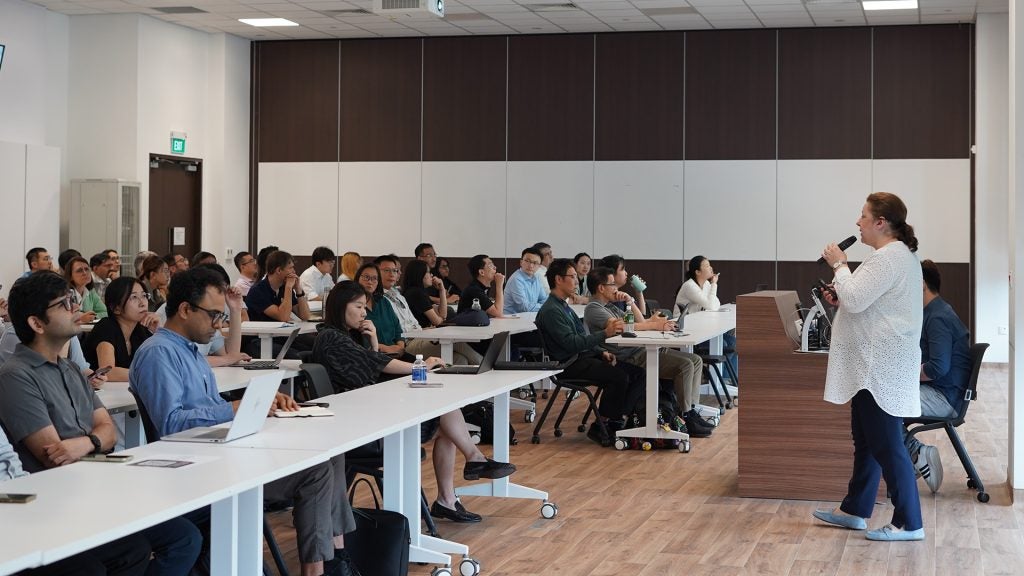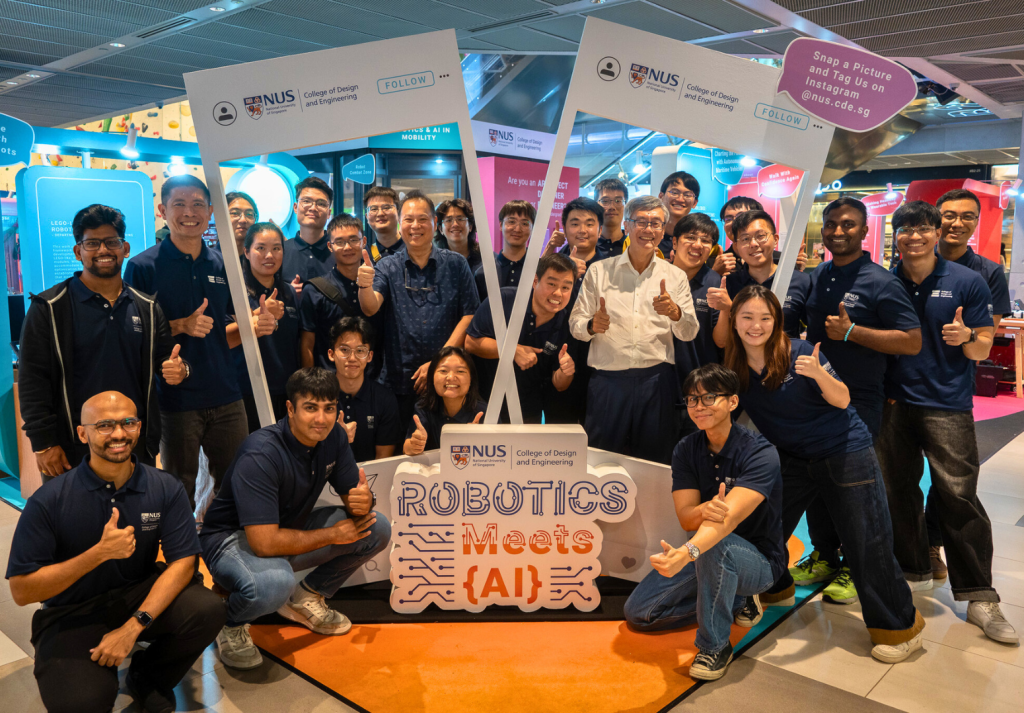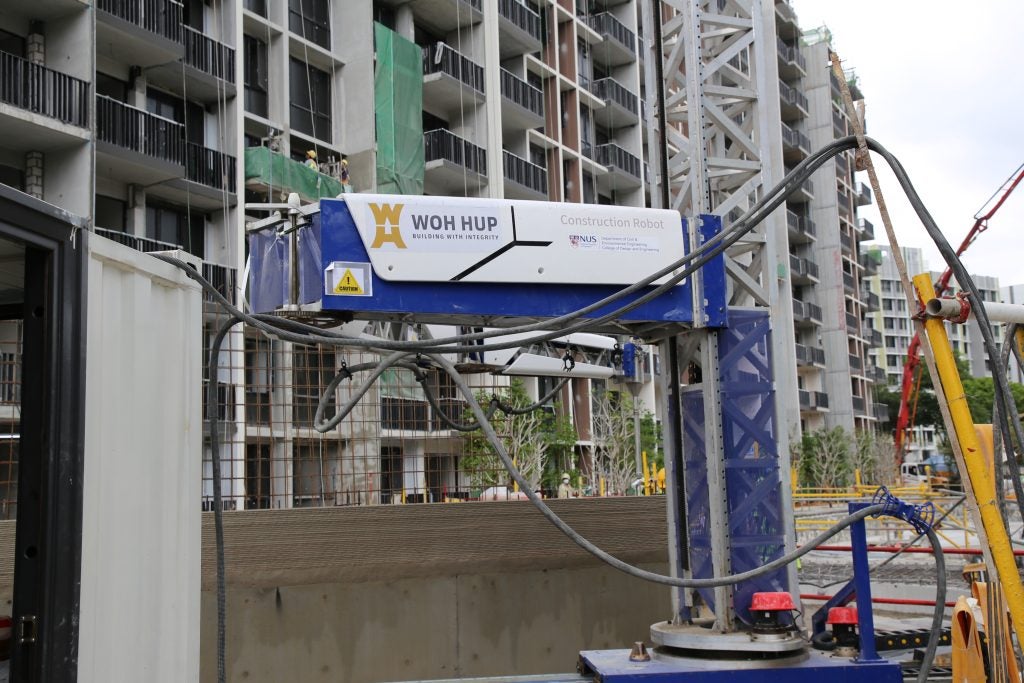
Giving a new spin to conventional chemical synthesis, an NUS team including researchers from Chemical and Biomolecular Engineering has developed an innovative process to automate the production of small molecules suitable for pharmaceutical use.
The new method can potentially be used for molecules that are typically produced via manual processes, thereby reducing the manpower required.
Demonstrating the novel technique on prexersatib, a pharmaceutical molecule used in cancer treatment, the NUS team achieved a fully automated six-step synthesis with 65 per cent isolated yield within 32 hours, compared with around a week for current standard production processes.
In addition, their automated technique also successfully produced 23 prexasertib derivatives, signifying the method's potential use in drug discovery and design.
The team says the findings, which were first published in the journal Nature Chemistry, can be applied to the production of a wide range of pharmaceutical molecules.
The researchers behind the breakthrough were led Associate Professor Saif A. Khan from the NUS Department of Chemical and Biomolecular Engineering and Assistant Professor Wu Jie from the NUS Department of Chemistry.
To read more on this story, click here to go to NUS News





